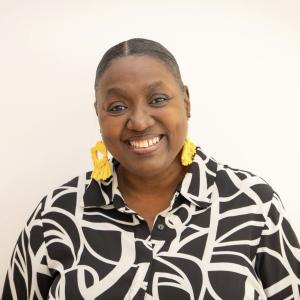New UN Project Launched to Strengthen Data And Policy Solutions To Support Rights-Based Population Policies And Programmes In Barbados And Montserrat
25 November 2022
The United Nations Barbados and Eastern Caribbean is working to address data gaps that are impeding development progress in Caribbean Small Island Developing States.
To this end, the Government and people of Barbados and Montserrat will benefit from a new joint programme aimed at improving access to quality, real-time demographic data, and gender analysis, to support evidence-based national sustainable development policies.
The USD$814,000 M Sustainable Development Goal (SDG) Fund Joint Programme - “Integrated Population Data and Policy Solutions to Accelerate SDGs Achievement in Barbados and Montserrat” was recently launched during a hybrid ceremony at UN House Barbados.
The two-year Project is being led by the United Nations Resident Coordinator Office for Barbados and the Eastern Caribbean, and jointly implemented by the United Nations Population Fund (UNFPA) and the United Nations Entity for Gender Equality and the Empowerment of Women (UN Women). It aims to strengthen capacity for implementation of rights-based population policies and programmes that integrate evidence on population dynamics, sexual and reproductive health and gender equality and their links to sustainable development.
UN Resident Coordinator, Didier Trebucq, in delivering welcome remarks noted that one of the major structural issues impeding implementation of the 2030 agenda regionally is the lack of reliable statistical data.
Citing existing gaps ranging from data collection to quality and level of disaggregation according to established SDG criteria, the UN Head maintained that “addressing and closing the gaps identified are essential to ensuring that there is elimination of poverty, inequalities, discrimination, and exclusion, thereby attaining just, gender equitable, and sustainable populations and societies.”
Minister in the Ministry of Finance and Economic Affairs in Barbados, the Hon. Ryan Straughn, in welcoming the initiative, said the joint programme will be a critical part of the Government’s programme in Barbados to revamp the way that they viewed statistics, in terms of real-time capacity to bring meaningful change to decision making.
“This is a very critical intervention at this time. It is timely because as we emerge into a new post-COVD environment, careful attention must be paid to mapping where the most vulnerable populations happen to be and what is required from a social enfranchisement policy perspective, to bring those persons along. This is so that we do not allow the recovery to take place without ensuring that those who have been seriously impacted from the pandemic, can also participate fully as it relates to the economic recovery.”
Premier and Minister of Finance in Montserrat, the Hon. Joseph Farrell, told the gathering small states like Montserrat were disadvantaged by the absence of clean, quality, disaggregated data. He anticipates strengthening data systems for development efforts to ensure that no one is left behind.
“I firmly believe that data is key to opening doors to new opportunities, resources, better programmes, and improved results. As such, I pledge my government’s full support for the implementation of this project as part of our broad engagement and collaboration with the United Nations towards progress of the Sustainable Development Goals, he assured.
Representative of UN Women Multi-Country office – Caribbean, Tonni Brodber, said UN Women’s focus in this joint programme was a critical one - to increase recognition and valuing of unpaid care and domestic work, which constitutes almost half of the total global work time.
“No country in CARICOM has data to measure unpaid domestic and care work. Absence of data on this means that women’s work and contribution to the economy will remain unrecognized. With support from the UN Women MCO-Caribbean, countries, including Barbados and Montserrat, will be gaining skills and knowledge how to collect and analyse this critical data,” she explained, while noting that “ addressing the gendered imbalance of unpaid care work is urgent business.
Officer-in-Charge, UNFPA Sub-Regional Office for the Caribbean, Jewell Quallo-Rosberg, told the forum, UNFPA continues to advocate for the use of population data and gender statistics to “lift the cloak of invisibility from persons most vulnerable to discrimination and inequality.”
She added that population data would also help beneficiary Governments to plan for development and better respond to crises, including natural disasters. “Everything we do is based upon solid data and evidence – because you can’t change what you can’t see. To get to zero, we need to identify and reach those most in need. Quality population data and evidence can help us get there.”
Also addressing the ceremony were other implementing partner Government representatives Mrs. Annette Weekes, Permanent Secretary, Economic Affairs and Investment Division of the Ministry of Finance, Economic Affairs and Investment, Barbados, Mr. Kenya Lee, Deputy Financial Secretary, Ministry of Finance and Economic management, Montserrat and Ms. Deonne Semple, Director, Planning and Policy Division, Ministry of Finance and Economic Management, Montserrat.
---Ends---
Media Contacts:
Carol-Ann Gaskin, Development Coordination Officer, Programme Communications and Advocacy
UN Resident Coordinator Office; Email: carol-ann.gaskin@un.org: Telephone: 1(246) 467-6110

Carol A. Gaskin
In her capacity, she leads communication and advocacy efforts for the UN Resident Coordinator's Office, overseeing operations in 10 Eastern Caribbean countries. Additionally, she chairs the UN Communications Group, fostering collaboration among communicators from 18 agencies.
Carol's expertise lies in developing communication strategies aligned with the Sustainable Development Goals and the 2030 Agenda. She excels in storytelling, utilizing various channels to amplify the UN's message effectively.
Her achievements include coordinating impactful events such as the "UN in the City" SDG exhibition and spearheading initiatives like the introduction of the Caribbean's first SDG-branded electric bus. Notably, Carol has received recognition for her outstanding work, including the Best Annual Results Report for Latin America and the Caribbean in 2023.
Her work extends to humanitarian efforts, notably providing coverage during natural disasters like the La Soufriere eruption.
With a proven track record of success and dedication to advancing global priorities, Carol A. Gaskin is a respected figure in the field of international development and strategic communication.


